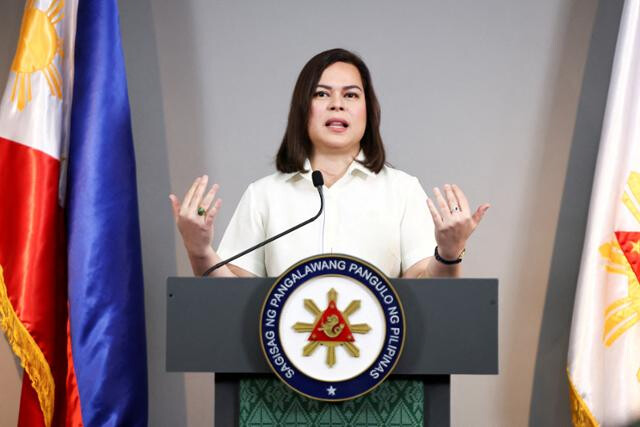
The political landscape in the Philippines is becoming complex. Sara Duterte, the Vice President and a strong contender for the next presidential election, has openly criticized the pro-US, anti-China policies of the current Ferdinand Marcos Jr. administration. Vice President Duterte emphasized that the Philippines has no reason to be caught in the US-China conflict and "must always remain neutral," effectively putting a brake on the Marcos government's foreign policy.
Marcos Government's 'Pro-US' Stance vs. Duterte's 'Neutrality' Argument
In April of last year, the Marcos government, using the annual "Balikatan" joint exercises with the US military as an opportunity, brought the 'Typhon' mid-range missile system into the Philippines and is pursuing its permanent deployment to counter China. Furthermore, the 'Navy-Marine Corps Expeditionary Ship Interdiction System (NMESIS)', a state-of-the-art anti-ship missile system brought in for this year's Balikatan exercise, is also planned to remain in the Philippines. These series of actions demonstrate the clear intention of the Marcos government to strengthen security cooperation with the United States in the South China Sea territorial dispute against China.
However, Vice President Sara Duterte has strongly criticized these policies of the Marcos government as "not an independent foreign policy." In a speech to local Filipinos in Melbourne, Australia, on June 22nd (local time), she argued that the Philippines "must always remain neutral because it is not part of a larger conflict," questioning why it cannot be friends with both the United States and China. This is interpreted as a remark that follows the pro-China stance of former President Rodrigo Duterte.
South China Sea Issue and Diplomatic Solutions
The South China Sea is a region where China claims approximately 90% of the area within its U-shaped 'nine-dash line' as its territorial waters, leading to conflicts with neighboring countries. The Philippines filed a lawsuit with the Permanent Court of Arbitration (PCA) and won a ruling in 2016, but China does not recognize this ruling.
Unusually, Vice President Sara Duterte acknowledged the PCA ruling but emphasized that exercising sovereignty and exclusive rights in the West Philippine Sea (the South China Sea waters claimed by the Philippines) must be done through diplomatic channels. She also added that the West Philippine Sea issue does not represent the Philippines' entire relationship with China, and therefore, there is no reason for the Philippines to lean towards the United States. This is interpreted as an indication of her preference for diplomatic solutions over a hardline military response in resolving the South China Sea issue.
Conversely, Philippine Coast Guard spokesperson Jay Tarriela countered that the Philippines' assertion of maritime rights is "not due to foreign pressure or influence, but based on our strategic interests," expressing displeasure with Vice President Duterte's remarks. This seems to reaffirm the Marcos government's stance of maintaining a firm attitude towards China regarding the South China Sea territorial dispute.
Vice President Duterte's Political Future and the Philippines' Foreign Policy Direction
Vice President Sara Duterte's remarks align with the foreign policy of her father, former President Rodrigo Duterte. During his term from 2016 to 2022, Rodrigo Duterte avoided confrontation with China in the South China Sea territorial dispute and adopted a pro-China stance. In contrast, President Marcos has pursued a contrasting foreign policy since taking office, strengthening defense cooperation with Western countries such as the United States and Japan, and sharply confronting China on the South China Sea issue.
Currently, Vice President Sara Duterte is awaiting the final impeachment trial in the Senate after an impeachment resolution was passed in the House of Representatives due to allegations of budget misuse and remarks about ordering the assassination of the presidential couple. However, it is analyzed that the momentum for impeachment has weakened after the Duterte camp effectively won the general election in mid-last month. This situation strengthens her political position and suggests that she could exert significant influence on the future foreign policy of the Philippines.
The Philippines has long maintained a strong alliance with the United States, but economically, cooperation with China has become increasingly important, leading to continuous efforts to balance between the US and China. Vice President Sara Duterte's recent remarks show that diverse views on foreign policy exist within the Philippines, and this debate is expected to intensify ahead of the next presidential election. International attention is focused on what diplomatic balance the Philippines will find amidst the US-China conflict.
[Copyright (c) Global Economic Times. All Rights Reserved.]




























